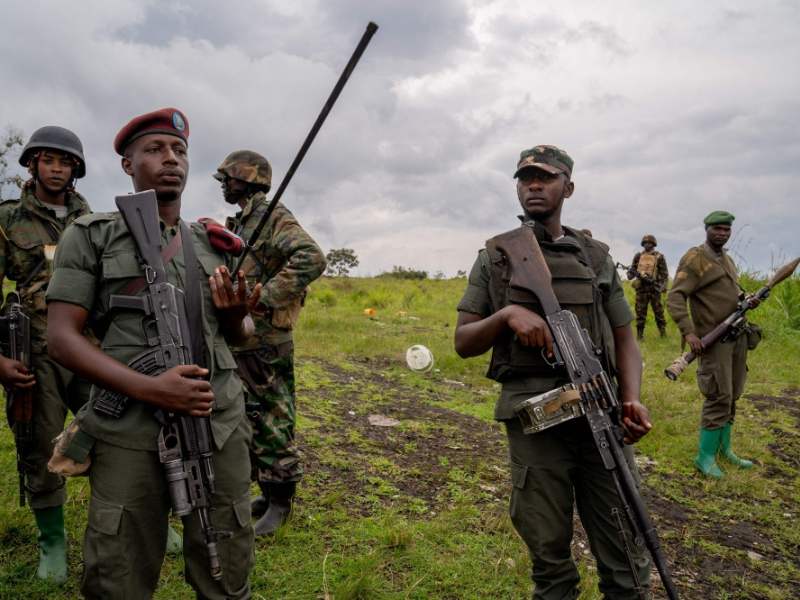DRC Strikes Early-Stage Peace Agreement with M23 Terror Group

7/21/2025 DRC (International Christian Concern) — Representatives from the Democratic Republic of the Congo (DRC) and M23, a Rwanda-backed terrorist organization, met Saturday in Qatar to sign a Declaration of Principles laying out the framework for a full peace agreement in August.
The move is a significant milestone in an international effort to end a deadly, decades-long insurgency in eastern DRC, but comes with many questions as the warring sides continue to disagree on key elements of the agreement.
In April, the DRC and M23 agreed to a Qatar-brokered ceasefire that was never implemented.
Under Saturday’s agreement, the parties pledged to build trust through a prisoner exchange and committed to signing a final peace deal no later than August 18. While M23 has previously said it is not beholden to any deal signed by Rwanda, Saturday’s Declaration of Principles includes a provision stating that the August deal will follow the framework of the June peace agreement between the DRC and Rwanda.
According to Mohammed bin Abdulaziz bin Saleh Al-Khulaifi, Qatar’s minister of state, a key element of the agreement includes the restoration of government rule in all parts of the country, including two major cities captured earlier this year by the rebels. While the DRC echoed this interpretation, stating that the agreement includes the complete withdrawal of rebel forces, M23 leaders have publicly disagreed and declared their intention to remain in captured territory.
“We are in Goma with the population,” one M23 spokesman told the Associated Press about one of the cities captured this year from government forces, “and we are not going to get out.” Another M23 leader took a more nuanced approach, saying that the declaration empowered the DRC’s government to resume its responsibilities across the country but fell short of mandating M23 conduct a complete withdrawal.
Though M23 receives backing from Rwanda, its fighters are primarily Congolese. Even if M23 were to dismantle its operations and relinquish control of the parallel administrations currently governing several areas of eastern DRC, it is far from the only militant group operating in the region. Without a robust force to fill the void, its withdrawal would likely create a dangerous power vacuum.
M23 itself rose out of a failed peace deal forged some sixteen years ago that was never fully implemented.
Roughly 120 distinct militant groups are active in the DRC, each with its own leadership, supply lines, and motivations. Among them is the Allied Democratic Forces (ADF), a jihadist militia aligned with the Islamic State group and known for its brutality and hostility toward Christianity — the dominant religion in the country.
In a statement Saturday, the U.N. mission to the DRC called on all parties to honor their commitments under the declaration and to prioritize human rights in their actions over the coming weeks.
“Act in good faith,” the statement read, “and prioritize human rights, security, and the aspirations of the Congolese people in all decisions.”
U.N. peacekeepers in the country are working to protect hundreds of thousands of displaced persons but have experienced increasing difficulty in executing their mission because of rebel advances.
The U.N. mission has become increasingly unpopular with Congolese government leaders in recent years. In December 2023, the U.N. Security Council approved the withdrawal after Congolese President Felix Tshisekedi requested a fast-tracked drawdown some months earlier.
The U.N. mission, known as MONUSCO, began to pull out of the country in February 2024. MONUSCO has worked in the country for more than 13 years and, before the drawdown, boasted nearly 18,000 personnel, including about 14,000 armed troops. Recent terrorist victories seem to be partially a result of the power vacuum left by the forced U.N. withdrawal.
Should the recent deal reduce M23’s effectiveness, regional security forces may be able to devote more attention to the ADF. In the meantime, however, the ADF seems poised to continue its radical Islamist campaign against the DRC’s Christian-majority population.
To read more news stories, visit the ICC Newsroom. For interviews, please email [email protected].
